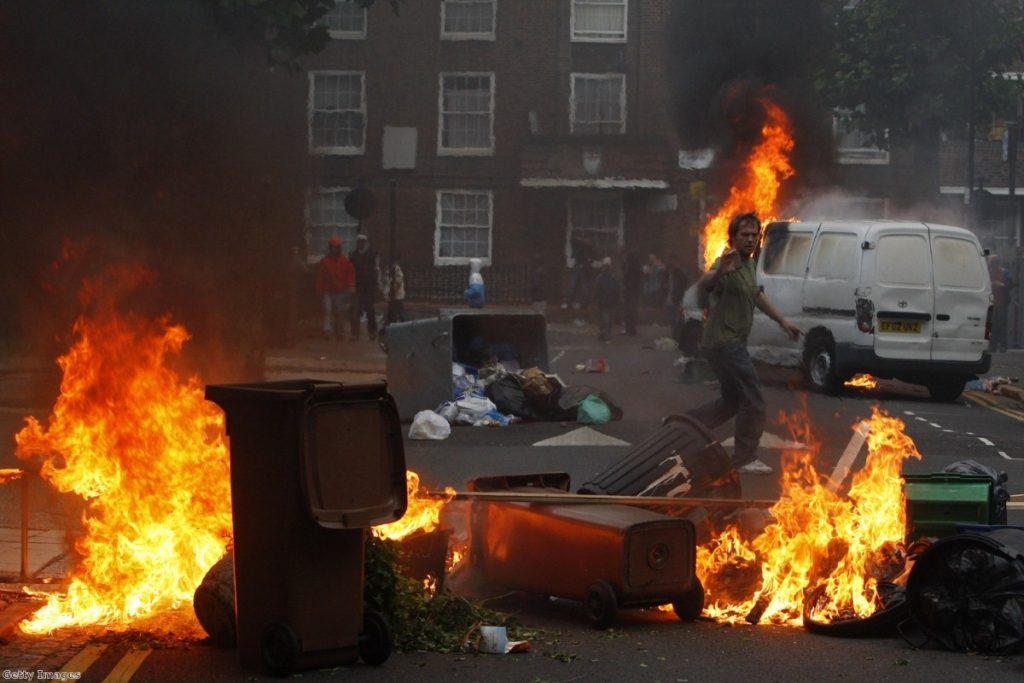Riots report questions troubled families focus
Troubled families targeted after last year's riots only had a "limited" impact on disorder, a government-commissioned report has found.
The riots communities and victims panel suggested the £450 million troubled families programme set up by the coalition in the aftermath of the violence in England's largest cities was only addressing part of the problem faced by British society.
It called on schools to assume responsibility for helping children "build character" by forcing them to pay a financial penalty when they fail to teach pupils to read or write.
Chair Darra Singh said everyone had to be given a "stake in society" to avoid a repeat of the violence.


"There are people 'bumping along the bottom', unable to change their lives," he said.
"When people don’t feel they have a reason to stay out of trouble, the consequences for communities can be devastating – as we saw last August."
The panel also proposed a 'youth job promise' scheme, similar to that proposed by Labour, which would guarantee young people a job if they have been out of work for a year.
Labour leader Ed Miliband said it was "telling" that the report had found 'having a job' was key to young people feeling they have a stake in society.
"One of the reasons I pressed so hard for this inquiry to be set up was that I felt strongly that we owed it to those people to do all that we could to understand the deeper causes of those terrible events, in order to prevent them from happening again.
"Lessons will clearly need to be learnt by the police and by the justice system."
Politicians, policymakers and academics are grappling with August's riots in a bid to establish whether it is possible to fix the problems behind them.
The first academic analysis published found that politicians were wrong to blame 'straightforward criminality' for the violence, instead arguing grievance and lack of opportunity were the real triggers.
A further study by the LSE and the Guardian newspaper suggested the riots were more politically based than had been thought at the time. General frustration with the current economic situation was found to be mixed with a number of grievances, including the coalition's tuition fees policy.
Tottenham MP David Lammy even suggested that the tightening-up of the law around smacking children was partly responsible.
Today's panel appeared to confirm many of the initial reports' conclusions. It found many people were concerned about opportunities for young people, poor parenting and a lack of shared values.
Confidence in the police, the justice system's failure to prevent reoffending and 'concerns about brands and materialism' were also noted.
Mr Singh added: "We urge party leaders to consider the importance of all of our recommendations.
"Should disturbances happen again, victims and communities will ask our Leaders why we failed to respond effectively in 2012."

